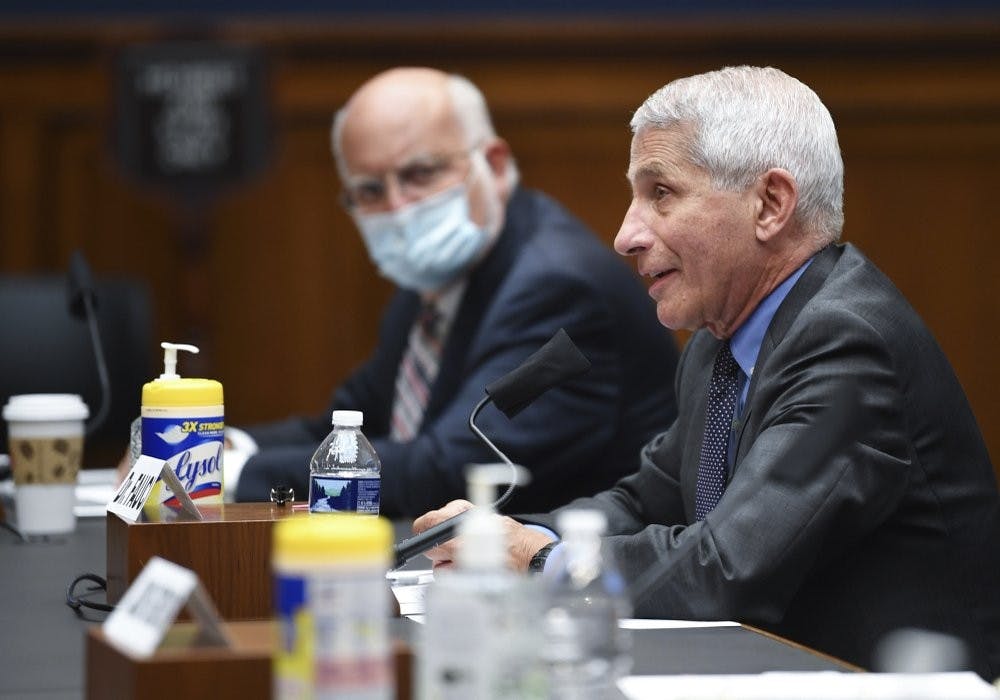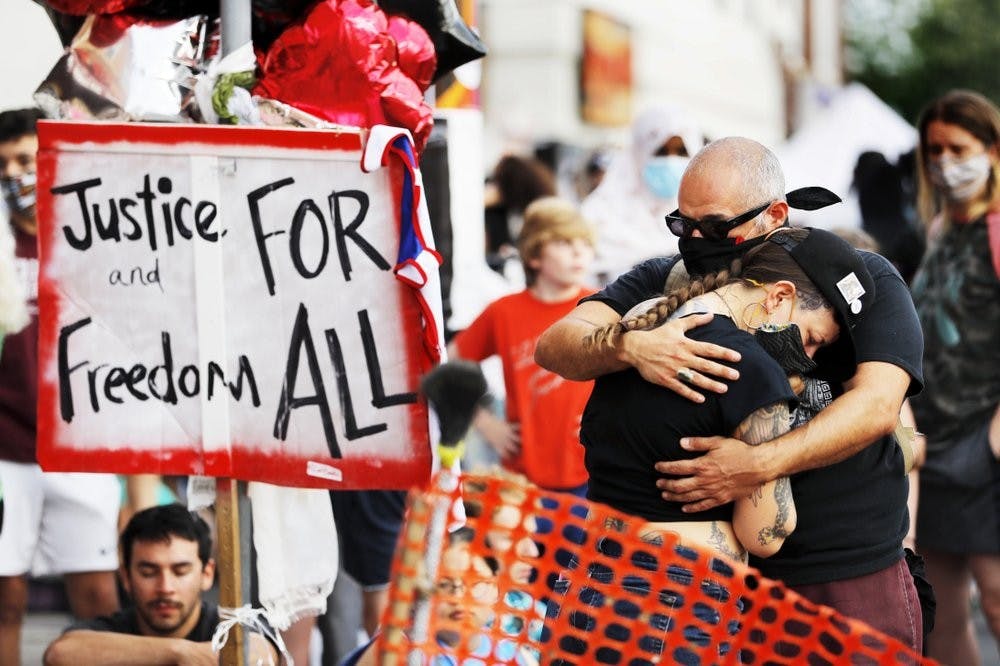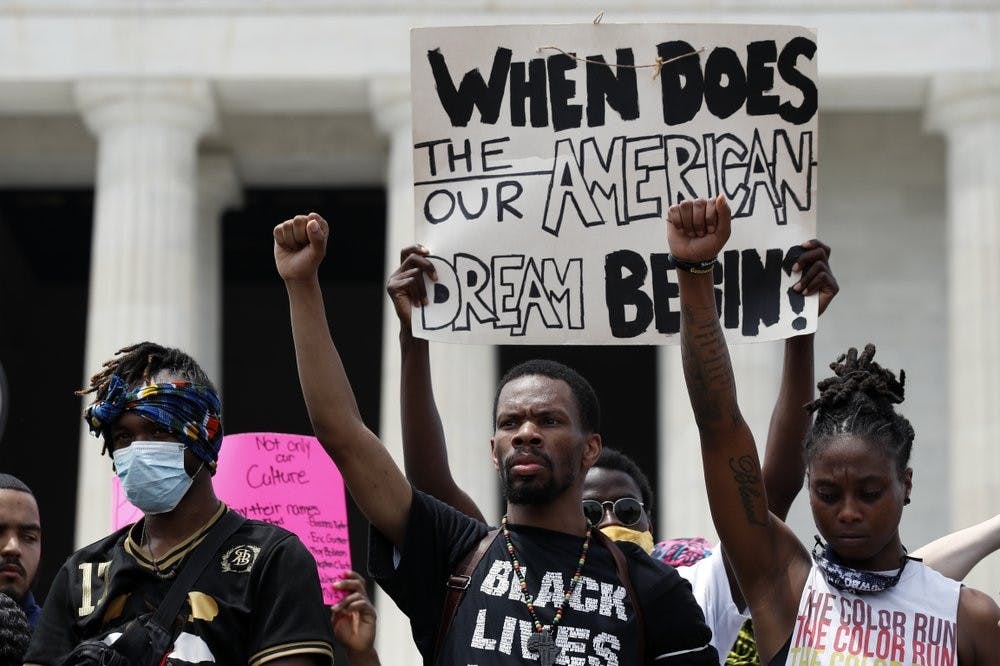Editor’s Note: This listicle is part of a weekly series by The Ball State Daily News summarizing five stories from across the United States. All summaries are based on stories published by The Associated Press.
Fauci’s hope for a vaccine by late 2020 or early 2021, Americans wanting change to the nation’s criminal justice system, the police reform bills in Congress, election primaries in Kentucky and New York and President Donald Trump’s proposed executive order to protect monuments make up this week’s five national stories.

Director of the National Institute of Allergy and Infectious Diseases Dr. Anthony Fauci testifies before a House Committee on Energy and Commerce on the Trump administration's response to the COVID-19 pandemic on Capitol Hill June 23, 2020, in Washington. (Kevin Dietsch/Pool via AP)
Fauci hopeful for a vaccine by late 2020, early 2021
Dr. Anthony Fauci said Tuesday he is cautiously optimistic that there will be a COVID-19 vaccine by the end of the year or early 2021. Fauci warned the next few weeks will be critical to tamping down coronavirus hot spots around the country. He and other top health officials also said they have not been asked to slow down testing for coronavirus. The U.S. has tested more than 27 million people, with about 2.3 million — or 8.4 percent — testing positive.
Read More: Virus Outbreak

People gather at the site where George Floyd died June 3, 2020, in Minneapolis. Americans overwhelmingly want clear standards for police on when officers may use force and consequences imposed on cops who do so excessively. (AP Photo/Julio Cortez, File)
AP-NORC poll: Nearly all in US back criminal justice reform
Americans overwhelmingly want clear standards on when police officers may use force and consequences for officers who do so excessively, according to a new poll that finds nearly all Americans favor at least some level of change to the nation’s criminal justice system. The new poll from The Associated Press-NORC Center for Public Affairs Research also finds there is strong support for penalizing officers who engage in racially biased policing.
Read More: Police

Senate Majority Leader Chuck Schumer of N.Y., speaks during a news conference on Capitol Hill June 16, 2020, in Washington. (AP Photo/Manuel Balce Ceneta)
A side-by-side look at police reform bills in Congress
Senate Democratic leaders want something similar to a far-reaching proposal from House Democrats – the Justice in Policing Act – that would create a national database of excessive-force encounters, limit legal protections for police and ban police chokeholds. The Republican proposal in the Senate calls for an enhanced use-of-force database, restrictions on chokeholds and new commissions to study law enforcement and race.
Read more: Police reform

Voters fill out their ballots during in person voting in the Kentucky Primary at the Kentucky Exposition Center June 23, 2020, in Louisville, Ky. In an attempt to prevent the spread of the coronavirus, voters that didn't cast mail in ballots were directed to one central polling location. (AP Photo/Timothy D. Easley)
Mail-in deluge tests elections in Kentucky, New York
Kentucky and New York officials faced a deluge of mail-in votes likely to delay results for days after high-profile primaries Tuesday, contests testing if establishment Democratic congressional candidates can withstand challengers fueled by voter fury over racism. There was particular concern about how voting might play out in Louisville, Kentucky, where the state’s largest city with a population nearly 600,000 had just one in-person polling place.
Read More: Elections

The White House is visible behind a statue of President Andrew Jackson in Lafayette Park June 23, 2020, in Washington, with the word "Killer" spray painted on its base. Protesters tried to topple the statue Monday night. (AP Photo/Andrew Harnik)
Trump says he’ll issue executive order to protect monuments
President Donald Trump said Tuesday he’ll issue an executive order to protect monuments that are coming under new scrutiny as America wrestles with racism during the unrest sparked by the police killing of George Floyd. Trump has been clear that he opposes the removal of monuments of leaders of the Confederacy or other distasteful aspects of American history. Trump said his executive order will “reinforce what’s already there, but in a more uniform way.”
Read more: Donald Trump





